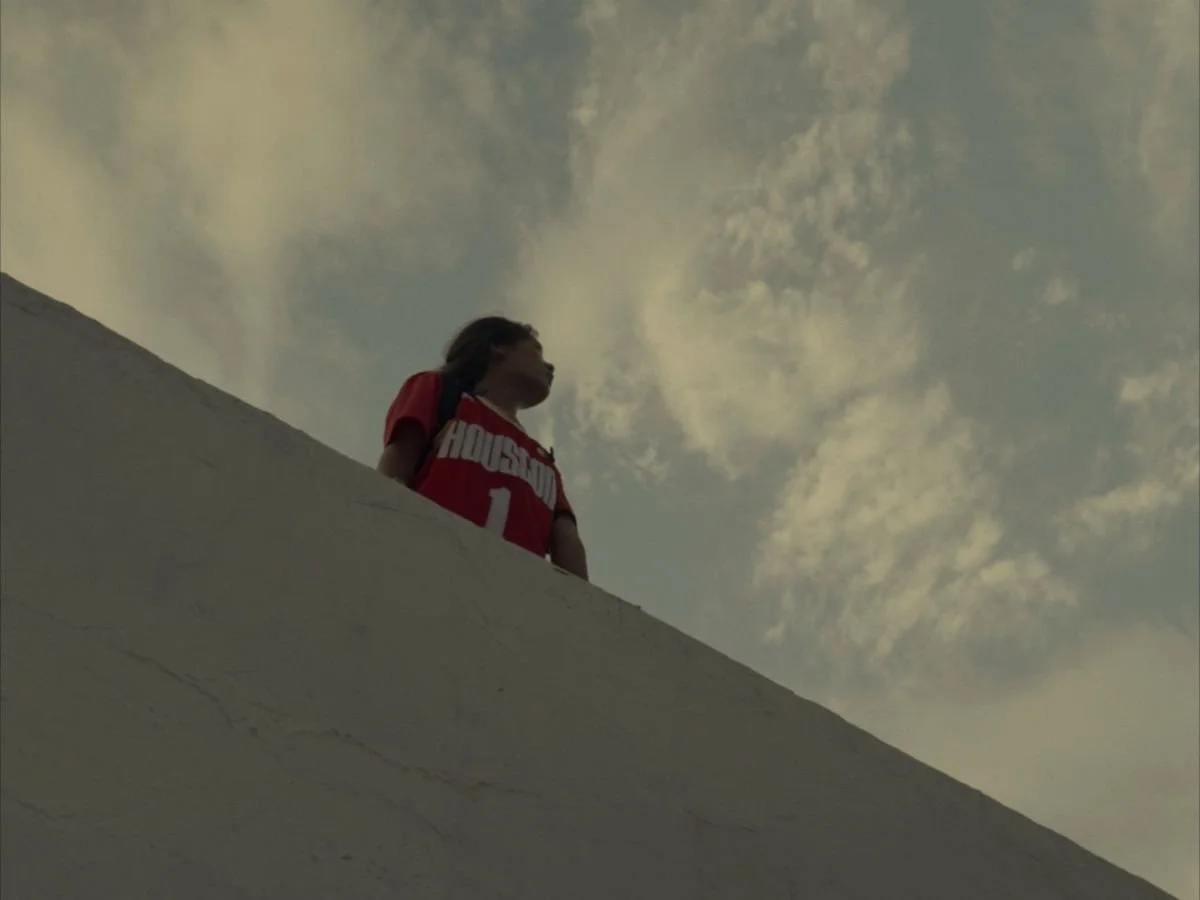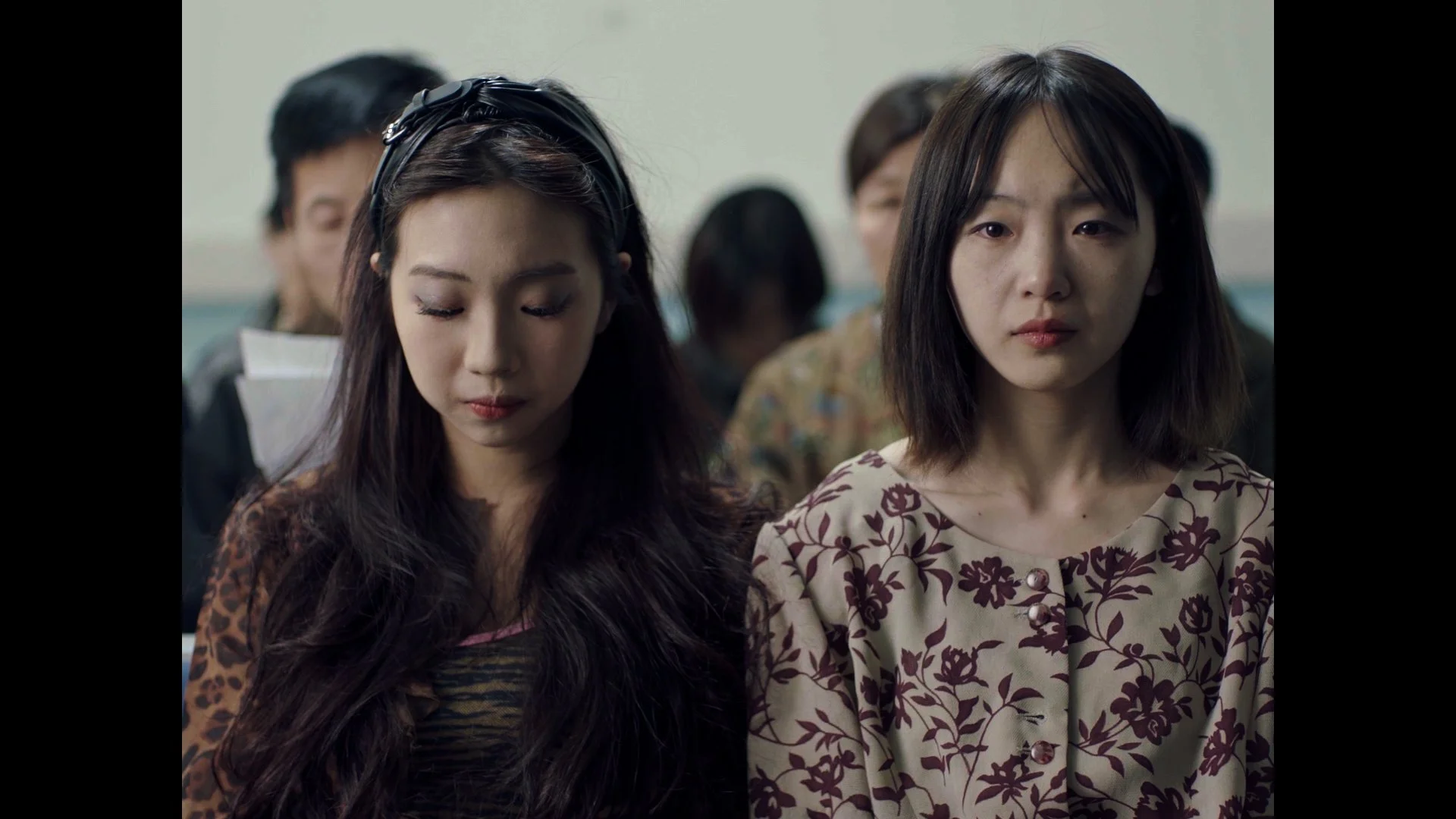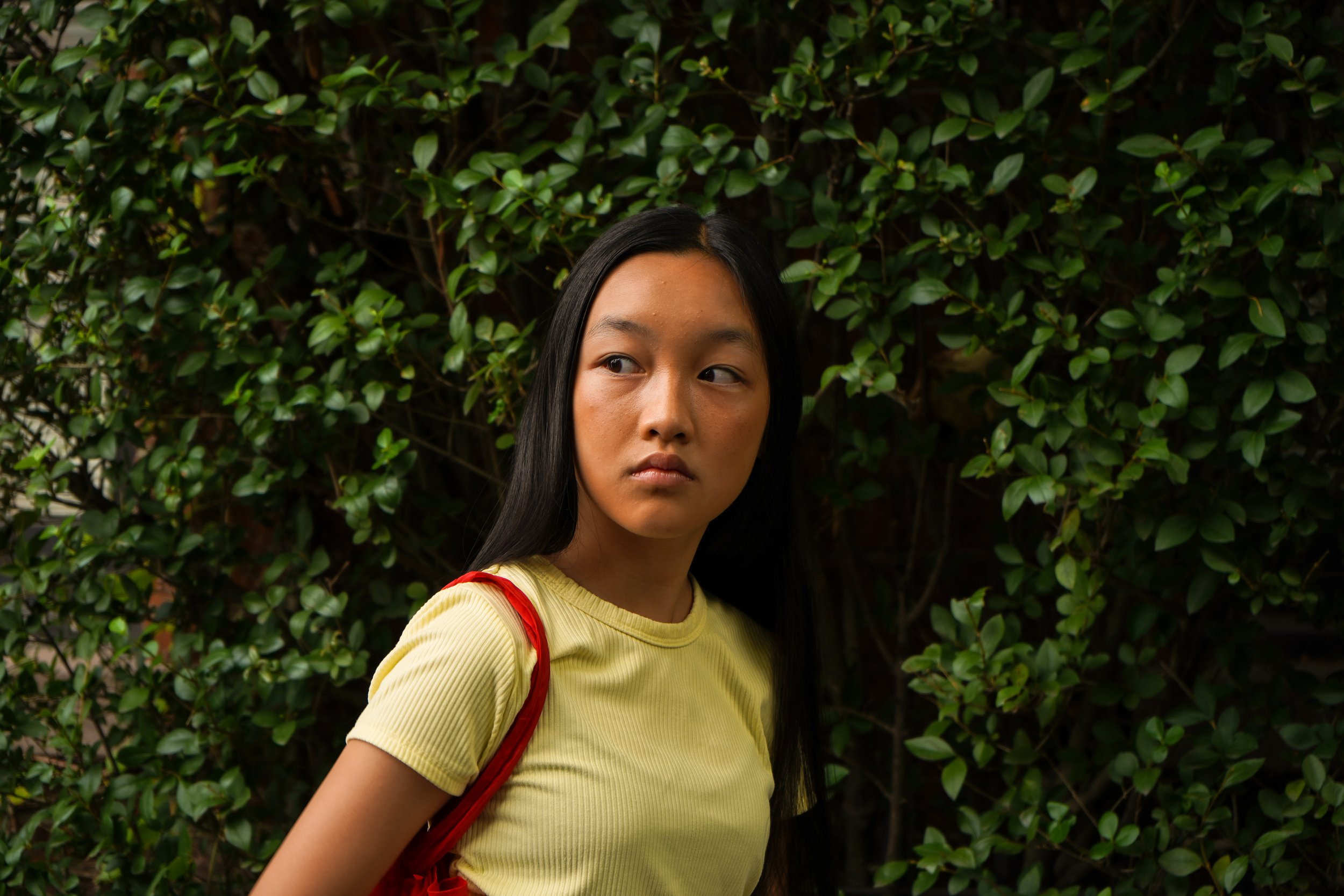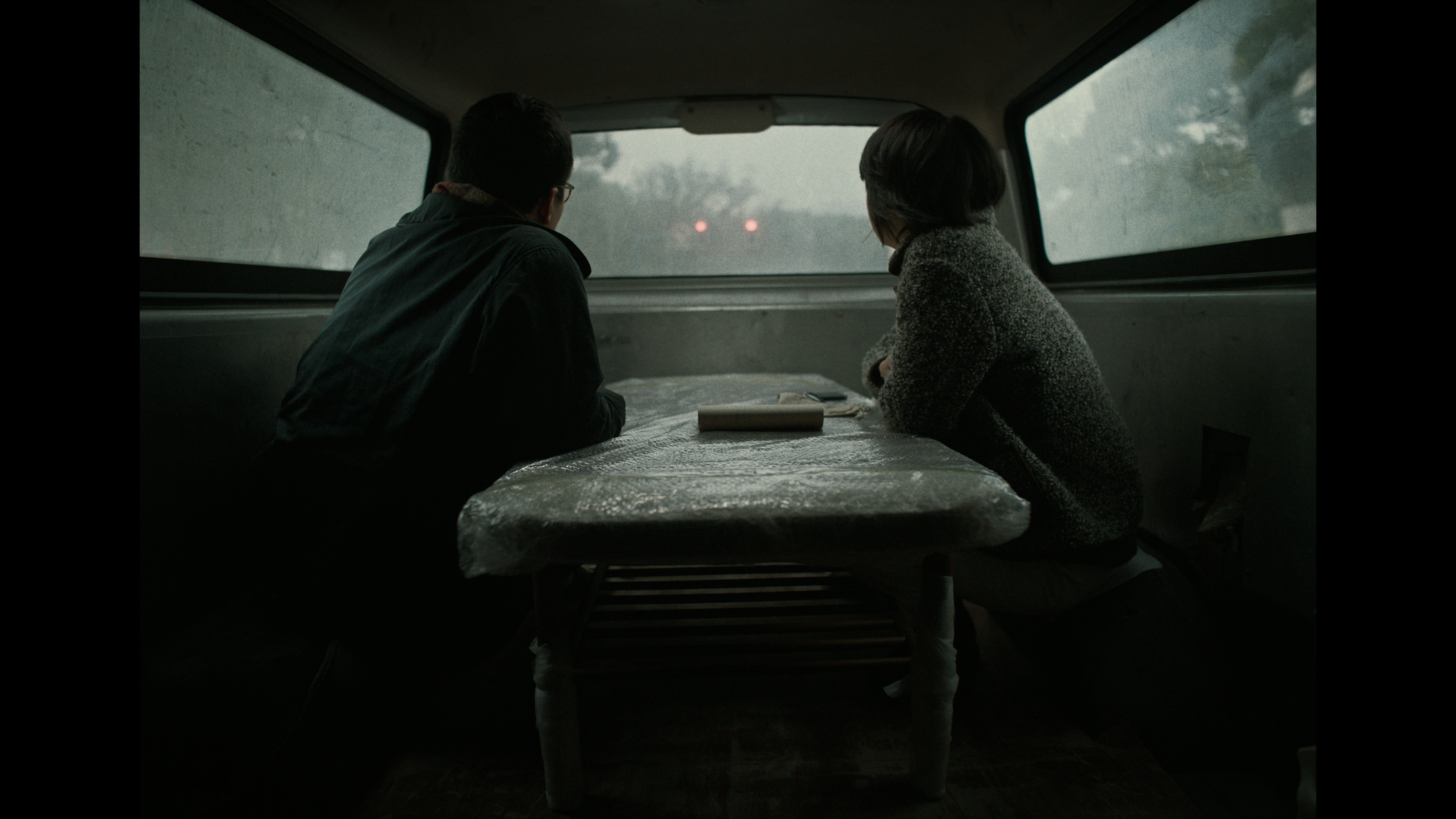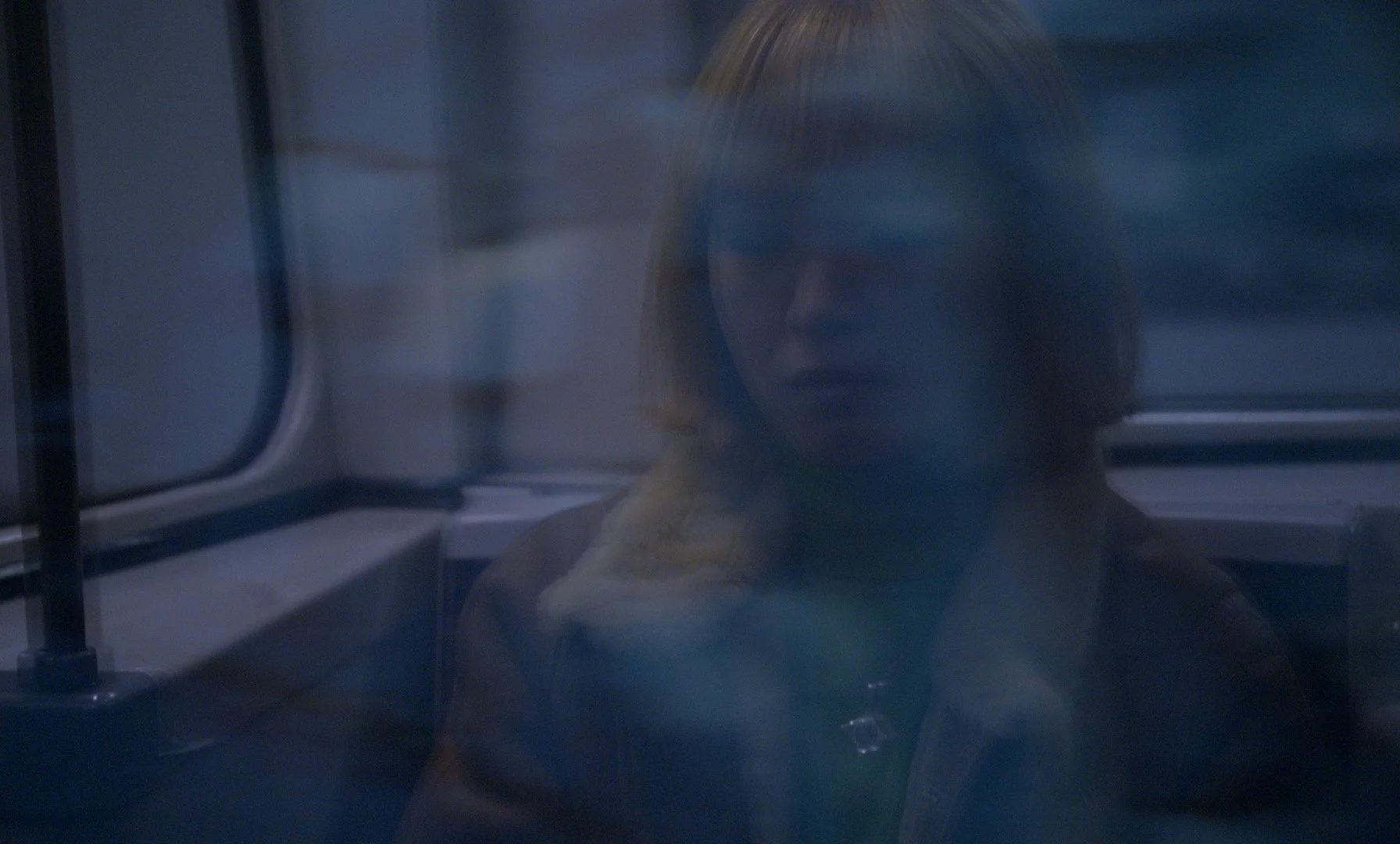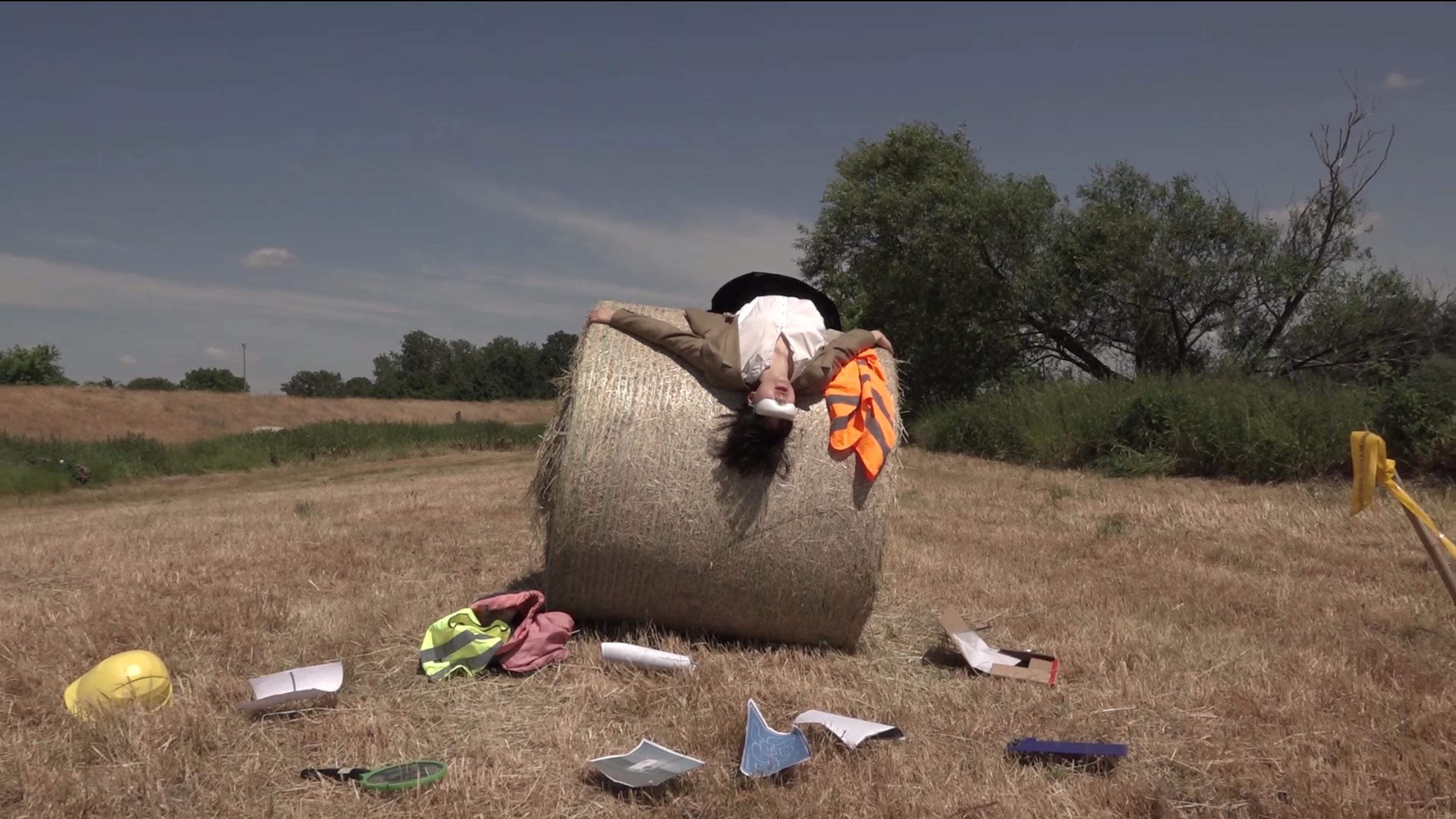Short Film Competition Review 1&2:11 of today's most promising works on Chinese language and women topic
Author: Rebys J. Hynes
Translator: Pengyu Du
English version article
Short Film Competition 1 is a testament to the high quality of films on offer at MINT Chinese Film Festival. These five shorts explore a variety of characters and worlds – from a domestic worker in Hong Kong to a martial artist in a cyberpunk future – yet they are all connected by their heartfelt musings on family and connection.
Sunflower Girl (dir. by Holly M. Kaplan) follows 13-year-old Rosie as she navigates self-expression, family and friendships on a yellow-tinged summer’s day. With intimate hand-held camera work and nuanced performances from the lead actors, Kaplan tells an emotionally resonant coming-of-age story perfect for fans of The Florida Project. The film is vibrant and inventive, whilst always being entrenched in the world of a teenager. It is also filled with little moments of creativity – I love the shot of Rosie’s sister taken from the perspective of an opened crisp packet!
Daughter and Son (dir. by Yu Cheng) is a wonderful and experimental meditation on human connection. In their dark flat Sachiko and Ming discuss their lives and connections, adopting different roles as they talk. There is an ambiguity and a playfulness of performance that makes for a film that is simultaneously disorientating and charming. The conversations are presented as a series of one-shots – the audience are always positioned in peculiar angles looking in on the couple, as if we are intruding on their lives. The last sequence is a technical marvel of camera work that absolutely floored me in its attention to detail and timing.
Thristygirl (dir. by Alexandra Qin) is one of the funniest films I have seen in a while. On a road trip with her younger sister, Charlie struggles to hide her sex addiction. From the first scene, Thirstygirl is laugh-out-loud funny and beautifully uncomfortable. Charlie acts disastrously throughout, yet she is always played with a tenderness and humanity that you can’t help but understand, even with her terrible choices. It is incredible how much depth Qin instils in her protagonists in only ten minutes.
Wena (dir. by Natalie Kung) tells the story of a domestic helper working for a middle-class Hong Kong family, as she tries to bring her husband over from the Philippines. This is the most political piece in the competition. It explores working-class life and the difficulties of immigration, as well as the isolation of employment in a different country to one’s own family. The film frankly portrays the hostility of rigid class dynamics and how seemingly benevolent people can act hostile when they have power over another. Katrina Dalino Toomalatai gives a standout central performance, encapsulating so much emotion in the smallest of actions.
Innermost (dir. by Maing Caochong) is the final film in the competition and it is so vastly different from what came before. The audience are plunged into a cyberpunk future for a whirlwind martial arts action film beautifully animated in stop-motion. The soundscape is delightful, the visuals are inventive and the action is thrilling. The movie is loud in every way it can be – colour, action, music – and yet there is a quieter, heartfelt story lying at its core. This is a story about love and heartbreak, told in an extravagant way.
This programme is wonderfully linked by themes of love and connection. It is politically engaged, vibrant and full of memorable visuals and characters. It is a delight to review this programme for MINT CFF and I hope you check out these films at the festival! Make sure to follow me for more reviews in the coming days.
Short Film Competition 2 features a series of quiet, meditative films about the difficulties of human connection. The films are often about confronting an imperfect future and trying to find one’s place in a world of uncertainty. I was blown away with the emotional range of this collection.
When a Rocket Sits on the Launch Pad (dir. by Bohao Liu) gripped me straight away with its unflinching close camerawork, placing the audience right there on the basketball court with Fang. The film follows a young girl at basketball practice, as she worries about her broken phone and her future. Hanging over the piece is this central idea of living in the shadow of a rocket launch and how it influences Fang’s longing and sense of self. As the film invites us further into Fang’s life, we realise that a darker story is unfolding. Liu does an incredible job of guiding us through Fang’s anxieties and desires whilst providing a resolute feminist critique.
With the second film, The Lost Ox (dir. by Jiawen Lei), we move away from the urban and into the rural. Pressured by her fiancé, Hanna returns to the mountains to reunite with her long-lost father before her marriage. There are some truly spectacular visuals throughout. The snowy mountains are omnipresent, wonderfully compounding a sense of isolation. We learn slowly about the central duo through sparse dialogue and nuanced performances, which really help the film build a sense of separation and things left unsaid.
Summer Past (dir. by Qiao Ru Zhang) follows a seventeen-year-old girl as she goes through the process of having an illegal abortion, supported by her best friend. It is a tremendous and heartbreaking tale of solidarity against an uncaring system. The combination of handheld camerawork and the 4:3 aspect ratio aids this film in building a sense of discomfort. It is in this feeling that the film excels. There is a startling intercutting shot towards the end of the film that sits in discomfort and confronts the audience with it. It is a stark and unflinching film, but one also made with clear tenderness and love.
Condition of Rabbits (dir. by Yanchen Wu) is simple and effective. This short animates the conversation between four women about their state of being. The women talk frankly about divorce and isolation, jealousy and loss. The animation is reflexive, responding to the various thoughts and musings of the speakers. At some points, the style resembles a child’s scrawled drawing, whilst at others it has a flowing, poetic layering like a painting in a modern art gallery. My favourite visual style is a little chalk-like sequence in the middle that has a lovely dusty quality, like a cave painting. I was enamoured with this film’s variety.
Dear Parents (dir. by Adèle Shaykhulova) is perhaps my favourite film on the programme. It has a very simple premise: Chao Ping worries about telling her parents that she plans to live in France, rather than return to China. Her stress is exacerbated by her broken laptop and the fear that she has lost her dissertation, her notes and her photos. Dear Parents takes this simple premise and infuses it with a sincere emotionality that is truly breathtaking. The final few moments are subdued and reflective and resonated with me strongly. It is a wonderful film about what we have, what we want and what we can’t get back.
Much like the Short Film Competition 1, this programme ends with a significantly different film to the rest and yet it ties the programme together wonderfully. Apocalypse Later (dir. by Florian Rudolph, Kyrylo Alferiev, Yueqi Wu) is a mockumentary following a location scout visiting East Germany to plan the construction of a post-apocalyptic shelter. Our protagonist is eerily excited for the apocalypse, yet she is about to discover that it is not what she expects. This begins as a pretty funny skit, but soon morphs into something unexpectedly sincere. It raises interesting ideas about the egalitarian nature of the end of the world, interrogating class with a sharp wit. Its ending is earnest and emotionally cathartic yet remains delightfully funny right to the last shot.
I was really impressed by the emotional scope of this programme. The films dealt with so many complex themes with depth and sincerity, optimism and humour. It is a diverse and interesting programme that I highly recommend you check out at MINT CFF.
-
Thu. 2024.2.1 21:00 【premier】
Fir. 2024.2.2 19:15
Sat. 2024.2.3 13:00
-
Fir. 2024.2.2 13:00 【premier】【Apocalypse Later Q&A】
Sat. 2024.2.3 17:45
Sun. 2024.2.4 11:45
-
Keswick Alhambra Cinema, 36 St John's St, Keswick CA12 5AG, UK
-
You can now secure the Festival Pass to access the Mint CFF films, events and programmes with a 50% discount.🔗 Find more information about what you can enjoy from the Festival Pass at festival website: unicornscreening.com/passes-tickets-2024
中文版文章
薄荷紫短片竞赛展映——11部当今最具潜力华语、女性议题新作精选短评
作者:Rebys J. Hynes
翻译:都鹏宇
短片竞赛展映-1 充分证明了薄荷紫华语电影节影片的水平之高。这五部短片探讨了各种不同的人物和世界,涵盖了香港的家庭佣工,到赛博朋克未来世界中的武术家。它们共同之处在于对家庭和关系的深刻思考,这使它们联系在一起。
《葵花女》(导演:Holly M. Kaplan 李美娟)讲述了 13 岁的罗茜在一个淡黄色的夏日里,在自我表达、亲情和友情的道路上不断前行寻找出路的故事。导演通过亲自手持摄影机和主演们细致入微的表演,讲述了一个引人共鸣的成长故事,非常适合《佛罗里达乐园》的影迷观赏。影片充满了活力和创造力,同时又始终植根于青少年的世界。此外影片还呈现了一系列富有创意的小瞬间——我喜欢以打开的薯片包装的角度拍摄罗茜的妹妹的画面!
《亲密》(导演:程宇)是一部精彩的关于人际关系的实验性冥想片。在昏暗的公寓里,幸子和小明展开对话,讨论他们的生活和人际关系,他们在交谈中扮演着不同的角色。这种富有模糊性和趣味性的表演使得电影充满了迷惑和吸引力。对话以一系列单一镜头的形式呈现,让观众总是以独特的角度审视这对夫妇,仿佛我们闯入了他们的生活。影片最后一个镜头堪称摄影技术上的一个奇迹,其对细节和时机的把控令我深感赞叹。
Thristygirl(导演:Alexandra Qin 秦晶晶)是我最近看过的最有趣的电影之一。在与妹妹的一次公路旅行中,查理竭力掩饰自己的性瘾。从第一场戏开始,Thristygirl 就笑料百出,又令人啼笑皆非。查理的行为自始至终都是目不忍睹的,但她的表演总是充满了温柔和人性,即使她做出了糟糕的选择,你也会情不自禁地理解她。令人难以置信的是,导演在短短的十分钟内就成功地注入了主角如此深刻的思想。
《薇娜》(导演:龚沛蔚)讲述了一位在香港中产阶级家庭工作的女佣试图把丈夫从菲律宾接过来的故事,是这一系列短片中最具政治性的作品。影片深入探讨了工人阶级的生活和移民面临的困境,以及在异国他乡工作与与家人隔绝的心情。作品坦率地展示了刻板的阶级对抗,以及在拥有权力后看似仁慈的人如何表露出敌意。女主角(Katrina Dalino Toomalatai)的出色表演中,细致入微的动作中蕴含着丰富的情感。
《无二》(导演:草虫鸣)是本组的最后一部影片,与前几部作品有着显著的不同。它将观众带入了一个赛博朋克的未来世界,呈现了一部以定格动画制作的旋风式武打动作片。影片的声音景观令人愉悦,视觉效果独具匠心,动作场面惊险刺激。尽管在色彩、动作、音乐等各方面都非常喧闹,但其核心却隐藏着一个宁静而真挚的故事,以夸张的方式诉说了一个关于爱与心碎的故事。
这一组以爱和关系为主题的短片,精彩纷呈,不仅兼具社会议题讨论性,而且生动活泼,充满了令人难忘的视觉效果和深刻的人物形象。我很高兴能为薄荷紫华语电影节撰写评论,希望观众们能在电影节上欣赏这些精彩的作品!也请大家关注未来几天我更多的评论。
短片竞赛展映-2 包括了一系列静谧而深思的影片,涵盖了人际关系中的困难。这些作品通常探讨如何面对不完美的未来,以及在充满不确定性的世界中找到自己的定位。这组影片所传达的情感深深打动了我。
《火箭发射时》(导演:刘博濠)以其坚定不移的近距离摄影,让观众仿佛与小芳一同置身于篮球场上,一下吸引了我的注意。影片叙述了一个正在进行篮球训练的年轻女孩对自己摔坏的手机和未来的担忧。作品的核心围绕在火箭发射期间的生活展开,以及火箭发射如何影响小芳的渴望和自我意识。随着影片深入揭示小芳的生活,我们逐渐意识到一个更为黑暗的故事正在展开。刘博濠出色地引导我们了解小芳的焦虑和欲望,同时提供了坚定的女性主义批判。
在第二部影片《孤行》(导演:雷家文)中,观众的视角从城市转向农村。汉娜迫于未婚夫的压力,在婚前回到山里与失散多年的父亲团聚。整部影片的视觉效果非常壮观,雪山随处可见,奇妙地强化了与世隔绝的孤独感。通过稀疏的对白和细致入微的表演,我们逐渐了解了这对核心人物,这确实帮助影片营造出一种离别之情和难以言说之意。
《暑往》(导演:张汝乔)讲述了一个17岁的女孩在她最好的朋友的支持下进行非法堕胎的过程。这是一个绝妙且令人心碎的故事,人们团结一致对抗的无情制度。手持摄影机和4:3画幅比例的结合有助于影片营造一种不安的氛围,正是这种感觉使得影片表现出色。影片结尾处有一个震撼的交切镜头,这种对峙会让观众感到不适。这是一部鲜明而坚定的影片,同时也散发着温情和爱意。
《兔子的状况》(导演:吴雁辰)是一部简洁但令人印象深刻的影片。它以动画的形式展现了四位女性关于自身生存状态的对话,她们坦率地谈论离婚、孤独、嫉妒和失去。反射性的动画对说话者的各种想法和思绪做出了回应。影片的风格有时像是孩子的涂鸦,有时则像现代艺术画廊中的一幅画,具有流动而富有诗意的层次感。我最喜欢中间一段呈现粉笔般质感的镜头,它带有可爱的粉末质感,宛如一幅洞穴绘画。这部影片的多样性让我深感着迷。
Dear Parents(导演:Adèle Shaykhulova)可能是我最喜欢的一部影片。影片的前提非常简单:超萍担心如何告诉父母她打算去法国生活,而不是回中国。由于她的笔记本电脑坏了,她担心论文、笔记和照片会丢失,这更加加重了她的压力。《亲爱的父母》在这个简单的情节基础上,注入了真挚的情感,令人赞叹。影片结尾的片段平缓柔和、发人深省,引起了我的强烈共鸣。这是一部关于我们拥有什么,我们追求什么,以及我们无法挽回什么的精彩之作。
与短片竞赛展映-1 一样,本组的结尾也是一部与其他作品截然不同的影片,却巧妙地将整组作品紧密相连。《启示录之后》(导演:Florian Rudolph, Kyrylo Alferiev, 吴悦琪)是一部伪纪录片,讲述了一名外景侦察员前往东德规划建造一个末世避难所的故事。我们的主人公对世界末日的到来感到异常兴奋,然而她即将发现这并不是她所期待的。影片一开始非常搞笑,但出乎意料地很快变得真挚。它对世界末日平等主义性质提出了有趣的观点,以犀利的机智质疑了阶级问题。结尾充满真诚和情感宣泄,但在最后一个镜头仍然保持着有趣的笑点。
展映的情感范围给我留下了深刻印象,影片们以深刻、真诚、乐观和幽默的态度探讨了许多复杂的主题。我强烈推荐大家在薄荷紫华语电影节上观看这个多元化而有趣的展映。
-
2024年2月1日(周四)21:00 (首映场)
2024年2月2日(周五)19:15
2024年2月3日(周六)13:00
-
2024年2月2日(周五)13:00 (首映场:《启示录之后》主创线下Q&A)
2024年2月3日(周六)17:45
2024年2月4日(周日)11:45
-
Keswick Alhambra Cinema, 36 St John's St, Keswick CA12 5AG, 英国
-






